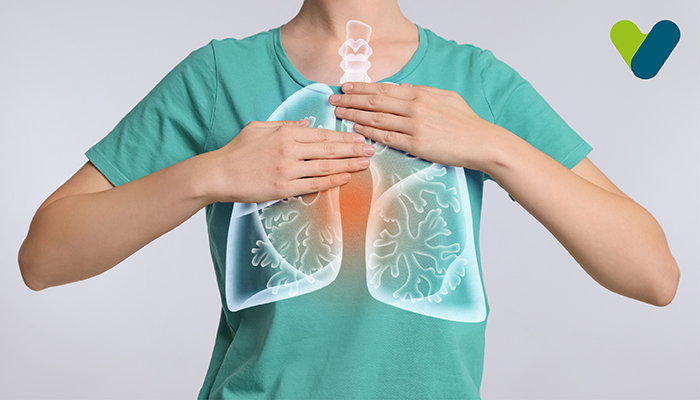Dixit had a rising pain in his chest. He had a lot of mucus secretion. To top it all off, he had been coughing all day. He had had a viral infection just weeks ago. He assumed it was viral pneumonia. He didn't bother to take antibiotics. But it turns out he had bacterial pneumonia. On consulting the doctor, he came to know about this. He then started the antibiotics, which lowered the pain significantly. Thus it is better to see the type of pneumonia that one has.
Having pneumonia means having an infection in your lungs. It may be caused by bacteria, viruses and other germs. The doctor will help you to know the correct type. This will help you the kind of treatment to subject yourself to. It depends on where you got the infection, the type of pneumonia.
Hospital-Acquired Pneumonia
This happens when you stay at the hospital for a long time. This type of pneumonia can be resistant to antibiotics. People on breathing machines are very vulnerable to this. Suppose you don't get a cough strong enough to clear your lungs. Also, one is susceptible if they have a tracheostomy tube to help them breathe. You can get it even if your immune system is weakened by a previous disease.Community-Acquired Pneumonia
It means you got infected outside a long time care facility or a hospital. Vaccines can help protect against this. Bacteria, viruses and fungi can cause it. It includes aspiration pneumonia. It happens when you breathe food, fluid or vomit into your lungs. If you can't cough up to clear your lungs, the bacteria will multiply in your lungs.Bacterial Pneumonia
Bacteria cause most community-acquired pneumonia in adults. You can catch pneumonia when someone who is infected coughs or sneezes. This fills the air with bacterial particles, and breathing it in can cause pneumonia. Having a weakened immune system can make you even more vulnerable. One is more vulnerable if one has asthma, emphysema or heart disease.The symptoms are:
- A cough that produces mucus.
- Fever
- Fast breathing
- Shortness of breath
- Chest pain
- Fatigue
- Antibiotics are required
- Also, fluid is pushed through your veins
- Oxygen has to be supplied
- Breathing treatments are also required
Walking pneumonia
It is usually a less severe form of bacterial pneumonia. It is also called atypical pneumonia. Symptoms are very mild. It sometimes even goes unnoticed. One also feels healthy enough to walk outside and go about their business. This is why it is called walking pneumonia.It has symptoms like
- Fever
- Cough
- Headache
- Chills
- Antibiotics treat the infection quickly. On taking the antibiotics, 3 to 5 days are enough to make you feel better.
- Viral Pneumonia
The symptoms of viral pneumonia are similar to the flu:
- Fever
- Chills
- Dry cough, which may make mucus, also
- Stuffy nose
- Muscle pain
- Headache
- Tiredness
- Weakness
Fungal Pneumonia
They are a less common cause of pneumonia. If you are healthy, you might not contract this disease. Also, a weak immune system can make you vulnerable. This happens due to:- Organ Transplant
- Chemotherapy
- Medicines to treat an autoimmune disease like rheumatoid arthritis.
- HIV
- People with specific jobs are more susceptible to this kind of diseases:
- Farmers who work around bird, bat or rodent droppings.
- Landscapers and gardeners who work with soil.
- Members of the military work around a lot of dust.
- Fever
- Cough


